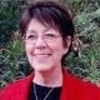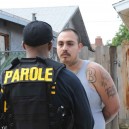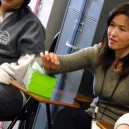Veteran Social Workers Discuss Their Reasons for Getting an MSW
 Whether you attend a quaint local community college or enroll in a sprawling university; it is inevitable that one day you will be approached by a guidance counselor and asked to answer the question, “What career are you pursuing?” Determinants of the decision can be as variable as the students who make them; some choose a career based on projected income in the field; others follow the dictates of family and friends; still others will throw themselves into an academic field based on long-standing passions. Whatever your criteria for picking one major area of study over another; it is always wise to survey the experiences of those who have forged the trails you may very well imagine yourself traversing.
Whether you attend a quaint local community college or enroll in a sprawling university; it is inevitable that one day you will be approached by a guidance counselor and asked to answer the question, “What career are you pursuing?” Determinants of the decision can be as variable as the students who make them; some choose a career based on projected income in the field; others follow the dictates of family and friends; still others will throw themselves into an academic field based on long-standing passions. Whatever your criteria for picking one major area of study over another; it is always wise to survey the experiences of those who have forged the trails you may very well imagine yourself traversing.
It was in this spirit of informed decision-making, that we sat down with two of our expert Social Workers and asked, “Why did you decide to become and earn an MSW?” Here are their answers:
 Carolyn Esparza, MSW, has been a social worker for almost 4 decades and has changed the lives of literally thousands of children and spouses of individuals who have been incarcerated by the criminal justice system. She founded “Community Solutions of El Paso” where in its first 6 years, 7,000 children received assistance in dealing with the harsh realities of having a parent in prison. As the author of The Unvarnished Truth about the Prison Family Journey (a book she authored with Philip Don Yow Sr., a Texas prisoner); Esparza has also been a potent educator of the community as well as instructor for individuals struggling with the societal dynamics and repercussions of incarceration; situations inherently damaging to the families left behind. To her credit she has been a Family Involvement Coordinator and Social Service Administrator (at a maximum security facility for the Texas Youth Commission) and a Treatment Director at a maximum security youth detention center in Colorado. She has established an additional presence in the federal prison system as the instructor of classes on parenting and a marked involvement in prison ministries. Esparza is Founder and Chair of “The Prisoner’s Family Conference,” a non-profit effort to “improve the quality of life for the prison family through increased awareness, education, networking and support by promoting positive relationships that lessen the traumatic impact and reduce risks resulting from the incarceration of a loved one.”
Carolyn Esparza, MSW, has been a social worker for almost 4 decades and has changed the lives of literally thousands of children and spouses of individuals who have been incarcerated by the criminal justice system. She founded “Community Solutions of El Paso” where in its first 6 years, 7,000 children received assistance in dealing with the harsh realities of having a parent in prison. As the author of The Unvarnished Truth about the Prison Family Journey (a book she authored with Philip Don Yow Sr., a Texas prisoner); Esparza has also been a potent educator of the community as well as instructor for individuals struggling with the societal dynamics and repercussions of incarceration; situations inherently damaging to the families left behind. To her credit she has been a Family Involvement Coordinator and Social Service Administrator (at a maximum security facility for the Texas Youth Commission) and a Treatment Director at a maximum security youth detention center in Colorado. She has established an additional presence in the federal prison system as the instructor of classes on parenting and a marked involvement in prison ministries. Esparza is Founder and Chair of “The Prisoner’s Family Conference,” a non-profit effort to “improve the quality of life for the prison family through increased awareness, education, networking and support by promoting positive relationships that lessen the traumatic impact and reduce risks resulting from the incarceration of a loved one.”
Carolyn, what inspired you to become a social worker; specifically one so involved in helping to heal the collateral damage which results when a family member is serving time in prison?
Among my earliest and most vivid memories is my very first day of school. My mother had diligently read the instructions sent to parents of first graders, and packed all of the right supplies and a plentiful lunch in my shiny new lunch box. But as the mother of an only child (at that time) while all of the other parents of first-graders had “abandoned” their young protégés soon after ushering them into the classroom, my mother refused to leave. Instead, she planted herself firmly in a straight backed wooden chair she pulled close to my assigned desk. I recall feeling embarrassed that she remained hovering over me, while the parents of the other fifteen or so students obviously felt their children were mature enough to face the vast unknowns of first grade alone!
Around noon Ms. Myers, the first grade teacher, instructed us to go quietly to our lockers at the back of the room to retrieve our lunches and return to our desks. First graders would be eating in the classroom. As we opened our first, first grade lunch and I eyed the bounty my hovering mother had literally crammed into my lunch box, my mother observed that the tiny disheveled girl seated in the desk next to me had no lunch. It was then that she gave me my first real lesson in compassion for those who are less fortunate. She suggested (rhetorically, I now realize) that I give half of my fat sandwich to the little girl, because she was “probably too poor to have any food in her house.”
As an only child who rarely needed to share with others and obviously was somewhat spoiled, I balked at the thought. “This is mine,” I remember saying selfishly, grabbing the plump tuna sandwich in my fist. Whispering, my mother explained that the girl might be poor and perhaps her mother couldn’t buy food to make her lunch. Her description of how hungry the little girl would be all day and possibly even go to bed hungry that night softened my heart sufficiently to allow my mother to tear my sandwich in half. I placed one of the two cookies at the bottom of my lunchbox on top of the sandwich, wrapped it in my only paper napkin and without another word, stood up, walked across the aisle, and laid it silently on Mary’s desk.
The thought that Mary would go to sleep at night hungry painfully gnawed away at my six year old psyche.
 Jessica Houston, LMSW, Ph.D., is an experienced, licensed Social Worker and the founder of “Expecting Victory” a center which specializes in helping women of all ages to facilitate the healing of debilitating, emotional wounds. She is a graduate of Benedict College (Columbia, South Carolina); Barry University (Miami, Florida) and Capella University (Minneapolis, Minnesota). Houston is the author of the book, Women’s Secrets: It’s Time to Stop Suffering in Silence and has gained much of her insight from her own personal history, which included extreme poverty, homelessness, physical abuse, severe depression and dangerously low self-esteem. Having emerged successful and self-fulfilled, she has modeled and demonstrated life’s possibilities by actively mentoring hundreds of girls deemed to be at risk. As a licensed Social Worker, she has worked within the field of hospice, as well as in a school setting as a social worker/coordinator of student services for the Jones County School System. In the area of academia and instruction, Houston has been an adjunct professor and field liaison for Fort Valley State University and currently serves as an adjunct professor for Kaplan University.
Jessica Houston, LMSW, Ph.D., is an experienced, licensed Social Worker and the founder of “Expecting Victory” a center which specializes in helping women of all ages to facilitate the healing of debilitating, emotional wounds. She is a graduate of Benedict College (Columbia, South Carolina); Barry University (Miami, Florida) and Capella University (Minneapolis, Minnesota). Houston is the author of the book, Women’s Secrets: It’s Time to Stop Suffering in Silence and has gained much of her insight from her own personal history, which included extreme poverty, homelessness, physical abuse, severe depression and dangerously low self-esteem. Having emerged successful and self-fulfilled, she has modeled and demonstrated life’s possibilities by actively mentoring hundreds of girls deemed to be at risk. As a licensed Social Worker, she has worked within the field of hospice, as well as in a school setting as a social worker/coordinator of student services for the Jones County School System. In the area of academia and instruction, Houston has been an adjunct professor and field liaison for Fort Valley State University and currently serves as an adjunct professor for Kaplan University.
You explain in your book the painful childhood and young adulthood you experienced, as well as the obstacles you had to overcome in order to experience success. Was it during that time that you decided to become a social worker?
I had an idea of what I wanted to do, but I was not quite sure. When I finally decided that social work was my profession of choice, the next question was: Why would you choose to be a social worker? Many people had formulated an opinion about the social work profession and dwelled on the fact that social workers did not make much money. While everyone meant well, what they really should have encouraged me to do is find my passion and discover my purpose. I cannot emphasize enough how important it is to discover your purpose for being here on this earth. Everyone was placed here for a reason and when you find that reason, you are going to have a new perspective on life.
In Summary...
It might easily be said that with regards to social work, it is not necessarily what the field has to offer the worker; but rather what the worker has to offer the field. Both of our experts were led to the profession as a result of their unique backgrounds and perceptions. Once they entered the field, each molded and shaped their academic and experiential qualifications into that which best served the communities in which they lived. That being said, it might be concluded that becoming a social worker is more about becoming one’s best self and sharing the results with others, rather than simply obtaining an education and looking for a job. Are you suited for a career in social work? The answer is up to you.
























